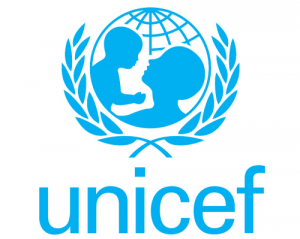


The United Nations Children Fund (unicef) and representatives of media groups in Cross River have called for concerted efforts in driving the campaign to end violence against children (VAC).
The call was made in separate presentations by child protection specialists and select journalists at a stakeholders workshop organised by unicef for media groups in Calabar.
Their views formed part of the measures to end violence against children in Cross River at a two-day multi-sector workshop organised in Calabar by the state Ministry of Women Affairs and Social Welfare.
The workshop, packaged in sync with the United States Agency for International Development and unicef, adopted the 2014 Nigeria VAC survey as its priority actions plan.
According to available literature, violence is fostered through the application of extreme force. It is anything intended to cause destruction, pain or suffering, injustice, wrong. It is scary.
The perception of violence against children in Cross River and Nigeria generally include, but not limited to, the following: hawking; refusal to send them to school; child labour; kidnaping; spanking as in spare the rod and spoil the child attitude.
Mr Tatenda Makoni, unicef Child Protection Specialist, in his presentation on VAC survey in Nigeria decried such cycles and classified them into physical, sexual and emotional violence.
According to Makoni, no less than six out of 10 children experience some form of violence to the extent that one in two children experience physical violence.
He also said that one out of four girls and one out of 10 boys experience sexual violence while one out of six girls and one out of five boys experience emotional violence.
“Majority of children experiencing physical, sexual or emotional violence in childhood do so on multiple occasions. Half of children first experience emotional violence before the age of 12.
“Majority of children witnessed violence in homes; 66 per cent females, 58 per cent males witnessed physical violence in the home before 18.
“Witnessing can have similar effect effects in children’s cognitive, behavioural and social development as experiencing violence and perpetrators are people whom children know,” Makoni said
Makoni said that consequences of these were enormous and provided a unique opportunity to mobilise Nigerians including journalist to take action.
Similarly, Mrs Nkiru Maduechesi Child Protection Specialist, unicef Nigeria, Enugu Field Office, called on stakeholders to work together to end violence against children in our society.
In her presentation, Mrs Ijeoma Onuoha-Ogwe, Communication Officer (Advocacy, Media and External Relations), unicef Nigeria, Enugu Field Office, urged participants at the forum and other stakeholders to “unite for children’”.
Her expectations were also that the issue be placed on the front burner of public discourse in Nigeria. According to Onuoha-Ogwe a child is anybody under the age of 18.
The State Commissioner for Women Affairs, Mrs Stella Odey, said the state, with a Child Rights Act in operation, already has zero-tolerance to all kinds of abuse of children.
Presentations were made by various groups at the workshop and they all agreed that Media groups as agents of change should endeavour to report cases of VAC through U-report, police webpage.
The journalists were also charged to encourage dialogue that seeks to change negative social norms, change perceptions and raise awareness of prevalence of gender-based violence and violence against children
The forum also called on governments at federal and state levels, other stakeholders, private sector, civil society and faith-based organisations to implement their commitment to ending gender-based violence and violence against children
The media groups were also advised to use videos, photos, social media to support calls to action to end violence against children in Nigeria.
The attention of practicing journalists were also drawn to some response priorities at their disposal including the development of messages to create awareness on available social welfare and child protection service.
They were also advised to engage with media organisations to create awareness on existing hotlines and short codes to foster VAC’s campaign.
The forum also resolved to engage the media to actively seek out reported cases and issues of violence against children and appropriately follow up to promote justice for children.
The media groups were also called upon to raise awareness before, during and after the proposed VAC campaign flag-off in Cross River in the second quarter of 2016.
It also recommended that practitioners could develop VAC messages and engage the media to influence society, challenge harmful practices and promote social norms that care for and protect children.
Journalists were also advised by the forum to promote collaboration with the mass media, information and communication technologies industry, to promote and enforce global standards for child protection.
There is no doubt that any serious-minded journalist could endeavour to Identify documents, literature and develop appropriate preventive orientation packages on VAC and widely disseminate them to members of the public.
Participants at the workshop also agreed that journalists could document campaigns for awareness creation at community levels, create spaces for plurality of voices and community narratives and encourage listening, dialogue and debate on VAC.
Active and meaningful participation could also engendered by the media groups by reflecting principles of inclusion, self-determination, giving visibility and voice to marginalised groups.They can also `”link community perspective to policy development/change’”.






